Learning doesn’t stop when the graduation caps fly. Adult community education opens doors for millions of people seeking to expand their horizons broaden their skills or simply try something new. From mastering digital photography to learning a new language these programs transform local community centers into vibrant hubs of knowledge.
In today’s fast-paced world staying competitive means staying educated. Adult community education programs offer flexible schedules affordable classes and practical skills that can boost careers or ignite new passions. Whether someone’s dreaming of starting a small business perfecting their culinary skills or finally mastering that spreadsheet software there’s a class waiting for them right in their neighborhood.
Understanding Adult Community Education
Adult community education programs encompass structured learning opportunities designed for individuals beyond traditional school age. These programs operate through local institutions to address specific community needs while promoting continuous personal development.
Key Principles and Goals
Adult community education centers on five core principles: accessibility, relevance, flexibility, collaboration and empowerment. Learning programs adapt to participants’ schedules through evening classes, weekend workshops and online modules. The curriculum integrates practical skills with theoretical knowledge, focusing on immediate application in work or daily life. Local organizations partner with industry experts to deliver targeted training in areas like digital literacy, professional certifications and creative arts. Programs emphasize peer learning networks where participants share experiences while building community connections. Course offerings evolve based on community feedback, employment trends and technological advances.
Benefits for Lifelong Learning
Adult community education creates measurable impacts on personal growth and professional advancement. Participants gain specialized skills that lead to career advancement or successful career transitions. Social connections formed during classes strengthen community bonds through shared learning experiences. The programs boost confidence by providing achievement milestones in a supportive environment. Cultural awareness expands as diverse groups interact through educational activities. Cognitive function improves through engagement in challenging mental tasks at any age. Research shows adult learners who participate in community education programs demonstrate enhanced problem-solving abilities and adaptability to change.
| Benefits of Adult Community Education | Impact Percentage |
|---|---|
| Career Advancement | 65% |
| Personal Growth | 78% |
| Community Connection | 72% |
| Cognitive Function | 45% |
| Cultural Awareness | 58% |
Types of Adult Community Education Programs

Adult community education encompasses diverse learning pathways designed for specific career goals personal interests. Programs range from professional certifications to creative pursuits meeting varied community needs.
Vocational and Skills Training
Vocational programs equip adults with practical job-ready skills through hands-on training experiences. Certificate courses include automotive repair welding healthcare services computer programming electrical work. Industry partnerships create direct pathways to employment with 85% of graduates securing relevant positions within 6 months. Programs feature:
- Technical certification preparation
- Industry-specific software training
- Safety compliance education
- Equipment operation mastery
- Professional licensure courses
Personal Development Courses
Personal development courses focus on lifestyle enhancement creative expression physical wellness. Popular offerings include:
- Art workshops (painting ceramics photography)
- Health fitness classes (yoga nutrition meditation)
- Financial management seminars
- Music instruction (instrumental vocal)
- Culinary arts programs
These courses attract 250,000 participants annually across community centers with 92% reporting improved quality of life.
Language and Literacy Programs
Language literacy programs serve diverse learning needs from basic reading skills to advanced multilingual communication. Core offerings include:
- English as a Second Language (ESL)
- Digital literacy training
- Reading writing fundamentals
- Business communication
- Cultural exchange workshops
Programs operate at multiple proficiency levels with flexible scheduling options. Success metrics show 73% of participants achieve their target language proficiency within 12 months.
The Role of Community Education Centers
Community education centers serve as essential learning hubs that coordinate adult education initiatives. These centers function as primary access points for educational resources while fostering community connections through targeted programming.
Program Development and Implementation
Community education centers design programs based on comprehensive needs assessments conducted every 6 months. Course curricula incorporate input from subject matter experts matched with local employment demands. Centers utilize data-driven approaches to track enrollment patterns across 15 core subject areas including technology skills professional certifications healthcare training creative arts business development. The implementation process follows a structured 4-phase model:
- Planning phase evaluates community needs through surveys focus groups
- Development phase creates curriculum standards assessment metrics
- Execution phase delivers courses through qualified instructors mentors
- Evaluation phase measures outcomes through participant feedback employment data
Community Partnerships
Local businesses educational institutions nonprofits form strategic alliances with community centers to enhance program offerings. Companies provide internship opportunities equipment donations guest speakers for specialized courses. Universities contribute academic expertise research capabilities curriculum development support. Current partnerships include:
- 85 local businesses offering workplace training programs
- 12 regional colleges providing credit transfer agreements
- 25 industry associations developing certification programs
- 35 nonprofit organizations delivering specialized workshops
These collaborations create direct pathways to employment with 73% of program graduates securing positions through partner organizations.
Teaching Methods in Adult Education
Adult education teaching methods emphasize practical application through diverse instructional strategies. Modern approaches integrate hands-on activities with digital tools to create engaging learning experiences for adult students.
Experiential Learning Approaches
Experiential learning transforms theoretical concepts into practical skills through active participation. Adult learners engage in real-world scenarios such as role-playing exercises simulating workplace situations or project-based assignments addressing community challenges. This approach incorporates four key components: concrete experience, reflective observation, abstract conceptualization, and active experimentation. Group discussions enable participants to share professional experiences, with 82% reporting enhanced knowledge retention through peer learning activities. Case studies drawn from relevant industries provide contextual learning opportunities, while hands-on workshops allow immediate application of new skills.
Technology Integration
Digital tools enhance adult learning through interactive platforms and virtual collaboration spaces. Learning management systems track progress and provide personalized feedback, with 75% of participants reporting improved engagement through online resources. Virtual reality simulations offer safe environments for practicing complex procedures in fields like healthcare and manufacturing. Mobile applications support flexible learning schedules, enabling access to course materials anywhere. Data analytics inform instructional decisions by identifying areas where learners need additional support. Interactive whiteboards facilitate group problem-solving sessions, while video conferencing platforms connect remote learners with industry experts. Educational software adapts to individual learning paces, supporting diverse learning styles and preferences.
Funding and Accessibility
Adult community education programs receive financial support from multiple sources to ensure widespread access. Financial backing comes from federal initiatives state allocations local contributions private donations.
Government Support and Grants
Federal funding supports adult education through dedicated grant programs administered by the U.S. Department of Education. The Workforce Innovation and Opportunity Act (WIOA) provides $649 million annually for adult education initiatives. State governments contribute matching funds ranging from 25% to 40% of federal allocations. Educational institutions access these funds through competitive grant applications evaluated on program effectiveness demographic reach innovation. Additional funding streams include:
- Carl D. Perkins Career Technical Education grants
- Adult Education State Grant Program allocations
- Community Development Block Grants
- Vocational Rehabilitation Program support
- Title II WIOA funding for literacy programs
Making Programs Affordable
Community education centers implement tiered pricing structures based on income levels program types course duration. Financial assistance options include:
| Assistance Type | Average Reduction |
|---|---|
| Income-based subsidies | 40-60% |
| Early registration discounts | 15-25% |
| Multi-course packages | 20-30% |
| Senior citizen rates | 35-45% |
| Veterans’ benefits | 50-100% |
Payment plans divide course fees into manageable monthly installments. Scholarship programs funded by local businesses foundations cover 75% of costs for eligible participants. Community partnerships with corporations result in employer-sponsored training reducing individual expenses by 80%.
Impact on Community Development
Adult community education programs catalyze significant transformations in local communities. These initiatives create ripple effects that extend beyond individual learners to influence broader societal development.
Economic Benefits
Adult education programs generate substantial economic returns for communities through increased employment rates and business growth. Local economies experience a 15% rise in small business creation when residents participate in entrepreneurship courses. Skills-based programs lead to a 23% average income increase for graduates within the first year. Communities with established adult education centers report 35% higher business retention rates compared to areas without such programs. The multiplier effect of educated workforce development creates $3.5 million in annual economic activity for every 1,000 program participants. These outcomes strengthen local tax bases and reduce dependency on social services.
| Economic Impact Metric | Value |
|---|---|
| Small Business Creation Increase | 15% |
| Graduate Income Growth | 23% |
| Business Retention Rate | 35% |
| Economic Activity per 1,000 Participants | $3.5M |
Social Cohesion
Adult education strengthens community bonds through collaborative learning environments. Participants from diverse backgrounds connect through shared learning experiences, with 82% reporting expanded social networks. Cultural exchange programs foster understanding across different community segments, leading to a 45% increase in cross-cultural activities. Neighborhood engagement rises by 67% among program participants through volunteering initiatives. Community centers hosting adult education programs see a 58% increase in civic participation. Local support networks emerge organically through study groups, creating lasting connections that extend beyond the classroom.
| Social Impact Metric | Value |
|---|---|
| Social Network Expansion | 82% |
| Cross-Cultural Activity Increase | 45% |
| Neighborhood Engagement Growth | 67% |
| Civic Participation Boost | 58% |
Conclusion
Adult community education stands as a cornerstone of lifelong learning and societal progress. These programs have proven their worth through impressive statistics including a 65% career advancement rate and significant economic benefits for communities.
The combination of flexible learning options practical skill development and strong community partnerships creates an effective framework for adult education. Through innovative teaching methods and technology integration these programs continue to evolve meeting the changing needs of today’s learners.
With sustainable funding models and accessible pricing structures adult community education will remain a vital force in personal growth professional development and community enhancement. It’s clear that investing in adult education yields substantial returns for individuals businesses and society as a whole.

